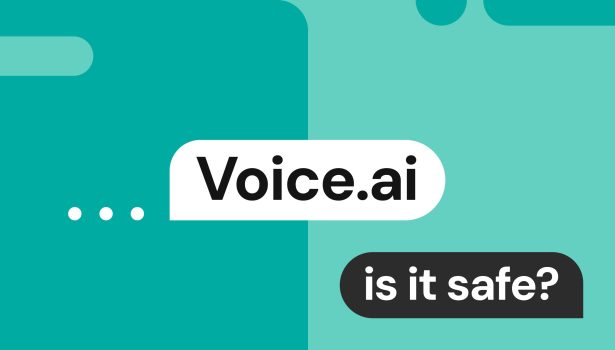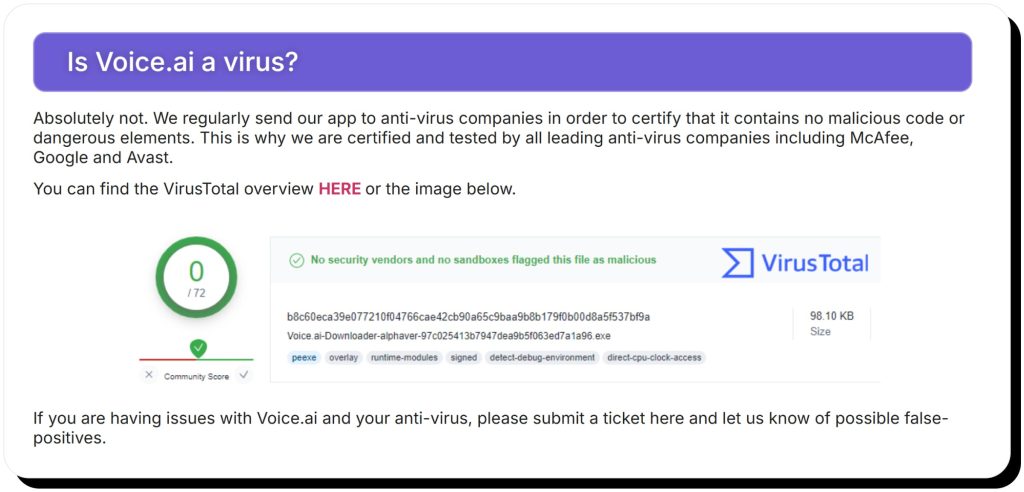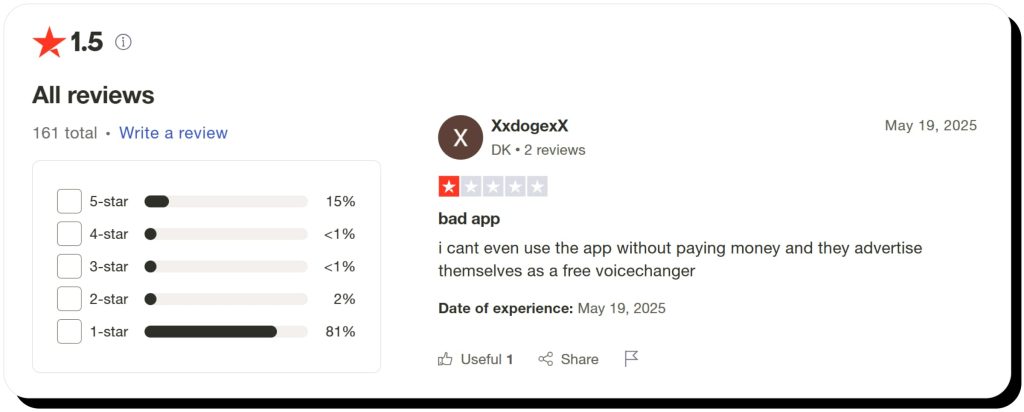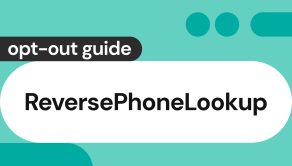Is Voice.ai safe? What to know about the AI-powered voice changer in 2025

Voice.ai is safe to use—as long as you download it from the official website and have a system powerful enough to handle its GPU demands. Despite some claims online, the app isn’t a virus or malware, nor is it a bitcoin mining program.
That said, Voice.ai is still in beta, and many users have reported bugs, performance glitches, and confusing subscription practices. So while it’s not unsafe, you should proceed with realistic expectations.
Is Voice.ai legit?
Voice.ai is a legitimate app that uses artificial intelligence (AI) to change your voice in real time. It’s especially popular among gamers and streamers who want to protect their privacy or simply have some fun by making their voices sound like famous characters. There’s a pretty large library of voices to choose from, and several of them work quite well.
You can either modify the recordings of your voice or use the “Live Mode” where it will be transformed on the fly. Voice.ai also has a MetaModel training program where users can volunteer their computing power to help train the application’s AI and get “credits” in return.
Voice.ai is still in beta as of mid-2025, which explains some of the bugginess that people experience. For one, the Live Mode uses extensive amounts of GPU power, which causes some users’ computers to crash or overheat as their graphics card isn’t strong enough to handle the app. Secondly, Voice.ai is marketed as a free voice changer, but key features are locked behind a paid plan, and users report unclear pricing and trial limits. Additionally, some report being charged after canceling or having difficulty navigating the cancellation process.
So while Voice.ai is a legit application, it still needs to do more work on improving its functionality and communication.
Is Voice.ai safe to use?
If your graphics card is powerful enough, and you’re downloading the app directly off the Voice.ai website, then it’s safe to use. That said, you still need to be aware of how your data is collected and shared, as well as the risks of using any app that has access to your voice.
Privacy Policy overview
Voice.ai’s Privacy Policy splits the data it collects on users into two main buckets: “voluntarily provided” and “automatically collected.” Voluntarily provided information includes, but is not limited to:
- Personal information like name, email, phone, and mailing address (submitted when creating an account and/or buying a subscription)
- User-generated content (text, videos, or images supplied voluntarily)
Automatically collected data includes, but is not limited to:
- Device info (device type, operating system, etc.)
- Log data provided by your web browser (IP address, pages you visit, etc.)
- Transaction data (stored files, user profiles, analytics data)
Voice.ai states it protects the collected data “within commercially acceptable means,” though it doesn’t specify encryption methods. The company also doesn’t specify retention timelines, saying it keeps your information “only for as long as we need to.” What’s more, Voice.ai discloses user data to third parties, which may include company affiliates, business partners, and marketers.

Another thing to note is that Voice.ai doesn’t provide data deletion options to users unless they reside in California. The only available options are data access and correction, but no opt-out of any kind.
The amount of data Voice.ai collects isn’t unusual for an online service, especially when compared to people pouring their entire lives into apps like TikTok. However, its handling definitely lacks transparency and clear user control.
Handling voice data
With the rise of AI-powered voice spoofing scams, it’s reasonable to be skeptical of using an app that’s specifically geared towards processing your voice or impersonating real people.
One thing that’s a bit reassuring is that although Voice.ai processes voice data for real-time modification, it doesn’t explicitly state that it stores voice recordings long-term (although this can’t be fully ruled out either).
If you decide to opt into the AI model training program, keep in mind that this may involve sharing your voice data with other users. Ultimately, there’s no telling who will get access to your voice and what they will use it for.
Common misconceptions about Voice.ai
Voice.ai is certainly buggy, and it’s rather deceptive in its marketing (particularly when calling itself a “Free Voice Changer App” and then proceeding to give users mere seconds worth of free usage).
However, there are several things that Voice.ai is not—it’s not a virus, it’s not a bitcoin miner, and it’s not illegal to use. Here’s a deeper dive into each of these frequently shared suspicions.
Virus claims
In the past, Voice.ai has been flagged by antivirus software frequently enough that the company has actually addressed this issue on its website to set the concerns to rest.

The thing is, antivirus programs frequently give false positives, particularly when they’re using heuristic models rather than known virus signatures for detection. It’s also important to note that newer software from lesser-known authors will often get falsely flagged as a potentially unwanted program (PUP), and a PUP isn’t the same thing as a virus. PUPs could be any of the following:
- a real security risk, like spyware that logs your keystrokes to steal your personal info
- a nuisance, like something that uses up a lot of computing resources or that hijacks your browser to redirect you to something that shows you a bunch of ads
- a simple unknown, like something you may have accidentally downloaded as part of a bundle along with something you did want to download
Voice.ai’s funky behavior, including issues around installing the program, has definitely creeped out a number of users, but these issues can generally be explained by the way it uses system resources for voice processing.
Bitcoin miner claims
Voice.ai uses a surprising amount of processing power, particularly when running Live Mode. It also offers a MetaModel training feature, where users can volunteer their GPU power to help train its AI.
Such intense GPU usage is unusual for most apps—but it’s quite typical for bitcoin mining software. Because of this similarity, some people have accused Voice.ai of secretly exploiting users’ computers to mine cryptocurrency.
However, the reason Voice.ai uses so much GPU is quite simple: real-time voice processing with AI is very demanding and requires a lot of power—your computer is constantly analyzing and modifying your voice. As of now, there’s no evidence the app is doing anything beyond what it claims. Moreover, the training program is something you opt into voluntarily. If you don’t feel comfortable with the idea, you don’t have to do it.
Is Voice.ai legal to use?
For personal use, Voice.ai is legal. However, if you cross over into the realm of impersonating someone for malicious purposes like harming their reputation or scamming other people, that’s against the law.
For example, if you’re just using Voice.ai to sound like Joe Biden while gaming online, that’s fine. (Apparently, Joe Biden’s voice is one of the better ones in their library.) But if you post a recording of your voice sounding like Biden’s trying to pass it off as the real former president saying some shocking things, that would be illegal.
You’ll also want to make sure you’re not violating copyright law, especially if you’re making money while using a famous person’s voice.
Is Voice.ai good? Examining user reviews
Currently, the Voice.ai app doesn’t have the greatest reputation—for the reasons we’ve discussed above:
- Voice output lags and sounds choppy
- Software is buggy and shuts down unexpectedly
- It’s advertised as “free” but doesn’t do much for free
- Users keep getting charged even after trying to cancel
Voice.ai’s rating on Trustpilot is 1.5/5 stars based on over 160 reviews, with some users stating they would give 0 stars if they could. Admittedly, there’s been speculation that Trustpilot can’t fully be trusted and tends to have more negative ratings overall. However, Voice.ai’s Mac App Store rating is even lower, at just 1.4 stars based on over 240 reviews.

While negative reviews prevail on all platforms, positive Voice.ai reviews are present as well, with people praising the quality of conversion and a wide range of voices.
Alternatives to Voice.ai
Voice.ai is far from being the only service out there that allows you to experiment with different voices, either recordings or while livestreaming. Here are a few alternatives to take note of:
- Voicemod. If you’re worried about stressing your GPU, then you might want to check out this application, which primarily uses the CPU. It has lots of voice options, includes built-in noise reduction, and integrates well with gaming and streaming platforms. Voicemod is best for goofy or scary voices—it’s not as recommended for the purpose of sounding realistic as other apps.
- MorphVOX. Overall, people seem pretty satisfied with the quality of this one. Some users say they noticed delays, but there are fewer complaints about glitching and robotic quality than with competitors. Also, MorphVOX is much lighter on system resources and doesn’t demand high GPU usage.
- ElevenLabs. This is another great option for people seeking out natural-sounding voices (as opposed to silly ones). As an AI research and deployment company specializing in text-to-speech and voice generation, ElevenLabs has been frequently praised for its quality. It does, however, lack live voice-changing features.
Final verdict: should you use Voice.ai?
Given the number of complaints lobbed at pretty much any AI voice changer app, perhaps the better question would be whether you should use one of these apps at all. It seems like people are setting themselves up for dissatisfaction and confusion, since the technology isn’t quite up to people’s expectations.
That said, if you really want to give Voice.ai a try and see what all the fuss is about, go ahead. Just be sure to only download it from the company website, and keep in mind the following:
- It may be glitchy
- It will be using a ton of your GPU
- The free version is extremely limited
FAQs
Is Voice.ai a virus?
Voice.ai is not a virus. This misconception arose because several antivirus providers flagged it as a potentially unwanted program (PUP) in its early stages, particularly during installation due to the drivers and GPU hooks it uses. However, this is less common now.
Is it safe to use Voice.ai for gaming or streaming?
It’s safe to use Voice.ai as long as you download it from the official website and make sure that your computer is powerful enough to avoid crashing in Live Mode. You also need to check copyright laws in your area if you plan on monetizing your content while using someone else’s voice.
Does Voice.ai sell my data?
Voice.ai doesn’t explicitly sell user data. The company, however, shares it with third parties, including business partners, marketers, and affiliates.
Is Voice.ai good for beginners?
Voice.ai is pretty user-friendly, as long as you have a powerful enough GPU. Just keep in mind that the subscription communications may be confusing, and the app itself is reported to glitch quite frequently.





Mark comes from a strong background in the identity theft protection and consumer credit world, having spent 4 years at Experian, including working on FreeCreditReport and ProtectMyID. He is frequently featured on various media outlets, including MarketWatch, Yahoo News, WTVC, CBS News, and others.